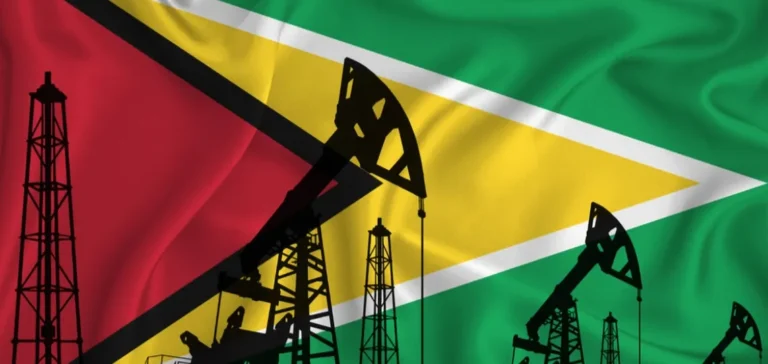President of Guyana, Irfaan Ali, has announced the upcoming implementation of new production-sharing agreements deemed more favourable to public finances. The decision comes after his re-election for a second five-year term, during which his party, the People’s Progressive Party/Civic (PPP/C), retained a parliamentary majority with 36 seats.
The head of state stated that the country will continue oil exploration under a strengthened contractual framework. The aim is to increase public revenue from the exploitation of hydrocarbon resources. “We will continue exploration under a more robust production-sharing agreement to ensure broader gains and wealth that truly benefits the population,” said Irfaan Ali during his inauguration speech.
Revision of the oil economic model
Since the start of production in 2019, Guyana has become one of the fastest-growing oil producers, with current output at 650,000 barrels per day. The government is targeting production of one million barrels per day by 2030, supported by major oil operators active in the country’s offshore basin.
Revenues have allowed the national budget to quadruple in five years, reaching $6.7bn in 2025. This growth also placed Guyana at the top of the most dynamic economies in Latin America, with a gross domestic product increase of 43.6% in 2024. The president aims to capitalise on this momentum while imposing new contractual rules to better regulate wealth distribution from the sector.
Regulatory impacts on a disputed territory
The announcements come amid a longstanding territorial dispute with Venezuela, which claims sovereignty over the Essequibo region, home to a significant share of newly discovered oil deposits. Although the dispute has not yet affected ongoing production, it could influence future contract negotiations and the attractiveness of exploration blocks.
The announced tightening of production-sharing terms reflects a political will to rebalance the agreements between private interests and the state. The Ali administration also plans to strengthen legal oversight for future projects, aiming to align investments with national budgetary priorities.






















